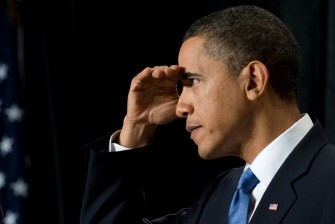WASHINGTON, Jan 29, 2010 (AFP) - President Barack Obama's administration plans to boost spending on maintaining the US nuclear arsenal and related laboratories by more than five billion dollars in the next five years.

Vice President Joe Biden warned in an opinion article in the Wall Street Journal Friday that the work force maintaining the weapons had been neglected and that nuclear facilities, some dating to World War II, were in decline.
"The same skilled nuclear experts who maintain our arsenal play a key role in guaranteeing our country's security now and for the future," Biden wrote.
"State-of-the art facilities, and highly trained and motivated people, allow us to maintain our arsenal without testing."
The vice president said that in his 2011 budget due to be unveiled on Monday, Obama would ask Congress for seven billion dollars for maintaining the US nuclear-weapons stockpile and infrastructure.
That figure is 600 million dollars more than Congress approved for the mission last year.
In addition, the administration plans to boost spending on the facilities and arsenal by more than five billion over the next five years.
"Even in a time of tough budget decisions, these are investments we must make for our security," Biden said.
"This investment is long overdue. It will strengthen our ability to recruit, train and retain the skilled people we need to maintain our nuclear capabilities."
In a major speech in Prague last year, Obama pledged to lead a quest for a world purged of nuclear weapons and to cut stockpiles, curtail testing, choke fissile production and secure loose nuclear material.
His administration said this week that talks with Russia on a successor to the Strategic Arms Reduction Treaty (START) which expired in December.
The two sides have agreed that the replacement treaty should slash the number of warheads on either side to between 1,500 and 1,675 and that the number of carriers capable of delivering the warheads should be limited to between 500 and 1,100.
The United States has said it currently has some 2,200 nuclear warheads, while Russia is believed to have about 3,000.
























